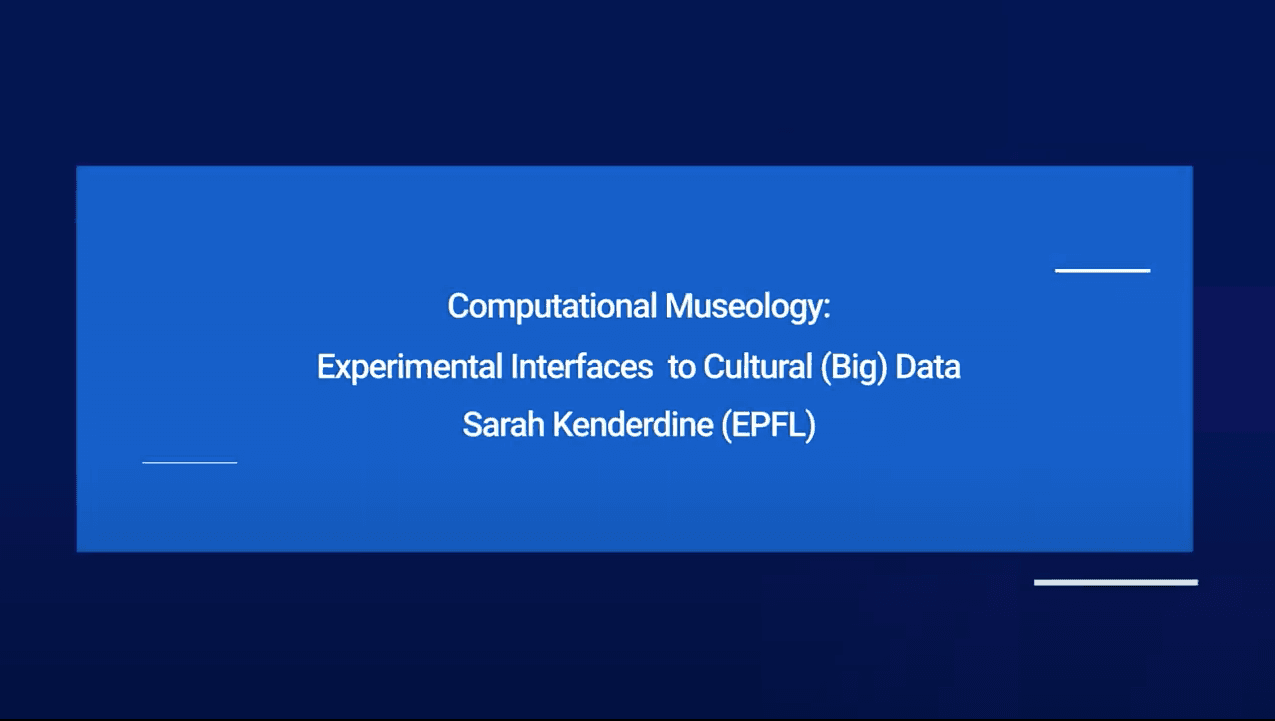Computational Museology - Experimental Interfaces to Cultural Big Data
- Authors
In 1889 the curator G. B. Goode of the Smithsonian Institute delivered an anticipatory lecture entitled ‘The Future of the Museum’ in which he said this future museum would stand side by side with the library and the laboratory.’ Convergence in collecting organisations propelled by the liquidity of digital data now sees them reconciled as information providers in a networked world. Media theorists describe this world-order as “database logic,” whereby users transform the physical assets of cultural organisations into digital assets to be—uploaded, downloaded, visualized, shared, users who treat institutions not as storehouses of physical objects, but rather as datasets to be manipulated.
This keynote lecture by Sarah Kenderdine explores how such a mechanistic description can be replaced by ways in which computation has become ‘experiential, spatial and materialized; embedded and embodied’. It was at the birth of the Information Age in the 1950s that the prominent designer Gyorgy Kepes of MIT said “information abundance” should be a “landscapes of the senses” that organizes both perception and practice. This “felt order” should be a source of beauty, data transformed from its measured quantities and recreated as sensed forms exhibiting properties of harmony, rhythm and proportion.
The title of the talk references a framework at the Laboratory for Experimental Museology EPFL based on ‘whole of environment’ encoding. Such a scaffold unites artificial intelligence with data curation, ontology with visualization, and communities of publics and practitioners with embodied participation through immersive and interactive interfaces. Exploiting a series of experimental and embodied platforms, the discussion argues for a reformulation of engagement with digital archives and digital objects at the intersection of the tangible and intangible. The performative interfaces and repertoires described demonstrate opportunities to reformulate narrative in a digital context and the ways they support personal affective engagement with cultural memory.
Sarah Kenderdine is a professor of Digital Museology at the École polytechnique fédérale de Lausanne (EPFL), Switzerland, since 2017 and member of the DARIAH Scientific Board. She leads the laboratory for experimental museology (eM+), exploring the convergence of aesthetic practice, visual analytics and cultural data. Kenderdine develops interactive and immersive experiences for museums and galleries, often employing interactive cinema and augmented reality. The keynote was recorded on September 7, 2021, at the DARIAH Virtual Annual Event 2021.

